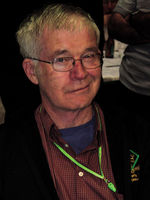We spent a little time last month discussing some of the issues that stroke sufferers face. But there’s one more episode on the trip south that needs recording.
 We stayed in Methven for a couple of days because the people there were relations and they offered tremendous hospitality. Methven can get very hot in the summer with blue skies and fine crops but it’s worse in the winter when the reverse is true with snow on the ground and thousands of skiers. We missed the change of season by a day as we headed for Kaikoura.
We stayed in Methven for a couple of days because the people there were relations and they offered tremendous hospitality. Methven can get very hot in the summer with blue skies and fine crops but it’s worse in the winter when the reverse is true with snow on the ground and thousands of skiers. We missed the change of season by a day as we headed for Kaikoura.
That would then leave us an easy day to visit relations in Blenheim the next day and reach Picton in plenty of time for the ferry. Because our car had a sign on the screen saying that I was a disabled driver the stewards on the ferry ushered us to a park near the stairs and away from the other cars. They really do look after passengers with special needs. We were on the smaller of the two ferries and there’s not a lot to do or see so we settled down in the dining room for some lunch and a good yarn.
We were well over an hour out of Picton when everything went quiet—I mean everything. The ships motors stopped and very soon afterwards the other electricals ceased operating and we were dead—stopped in our tracks. Not a sound and we waited and we waited. After what seemed an eternity the captain’s voice came over the emergency public address system and told us that the anchors were out and the motors were dead. After an hour or so emergency services came on and there was light and food. So the galley kept us supplied with food and we just waited.
What surprised me was the attitude of the passengers and crew. There was no outbreak of fuss among the passengers, even the children were subdued. The crew were at their best trying to contact passengers’ relatives with a cell phone and unfortunately as the hours ticked by they also had to let Wellington Airport know that some people would miss international flights.
After several hours of waiting in silence the crew managed to get the motors to run. How well I’m not sure because they were not game to tackle the strait. So it was back to Picton and off with all our cars and the many heavy trucks. No one complained, they just did it. Eventually they loaded us, as well as the regulars, onto the next ferry.
I don’t think they got around to actually telling the next ferry we were coming aboard and we were many hours late by now. I think it was the eight o’clock sailing and it didn’t sail till eleven o’clock. So far I learned two lessons. On board the disabled ferry we were kept reasonably well informed at each stage and it was accepted, while on the later ferry they didn’t give the passengers any information and the people became pretty angry. That’s the moral to this story.
At about 3am we turned up at the presbytery in Tawa where we should have been about 10 hours earlier. Our attempt at trying to have an easy day for the sailing was somewhat disrupted and the folk who waited up for us were decidedly the worse for wear.